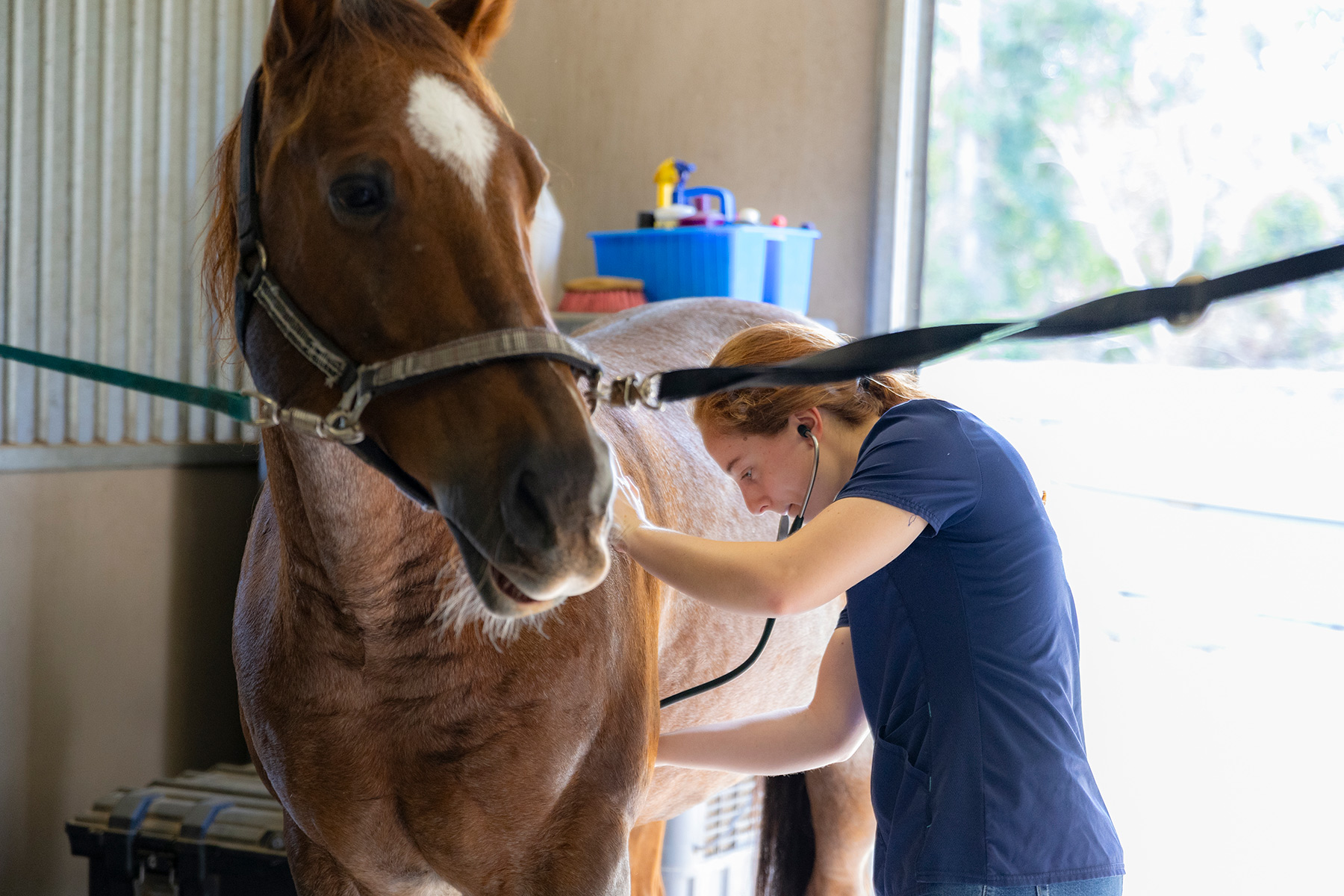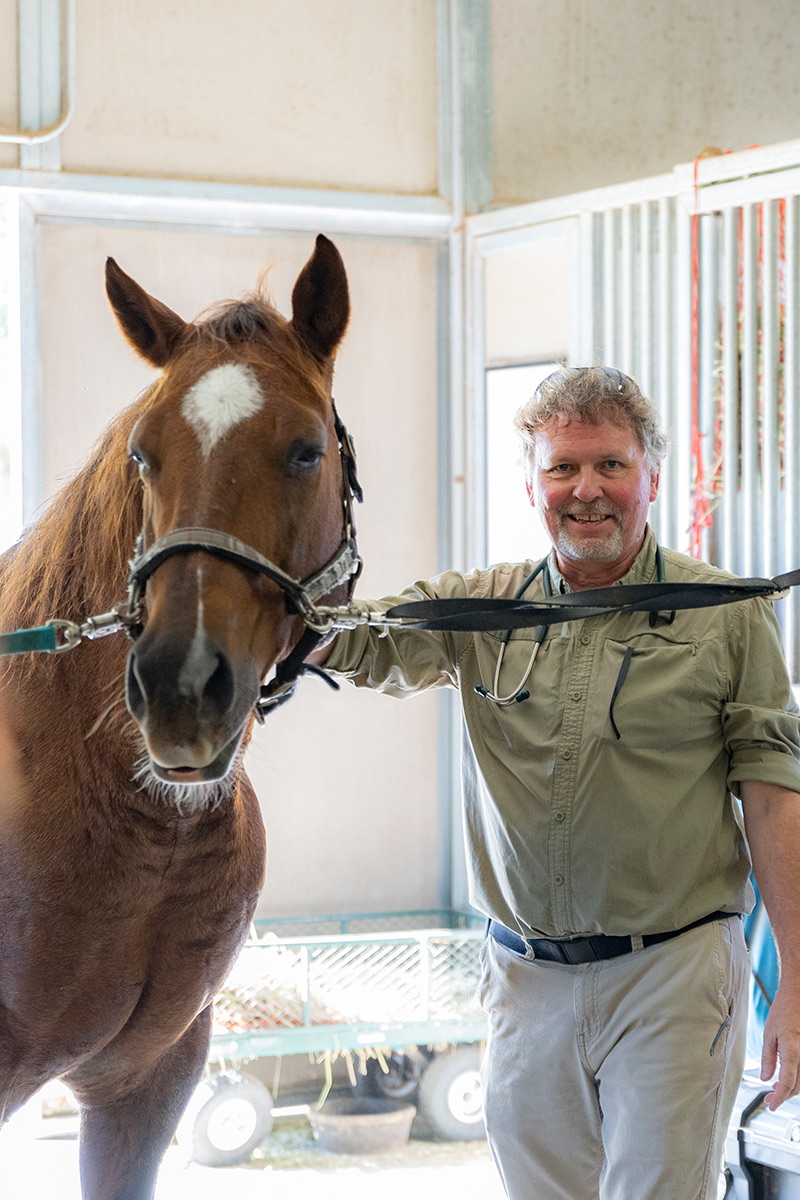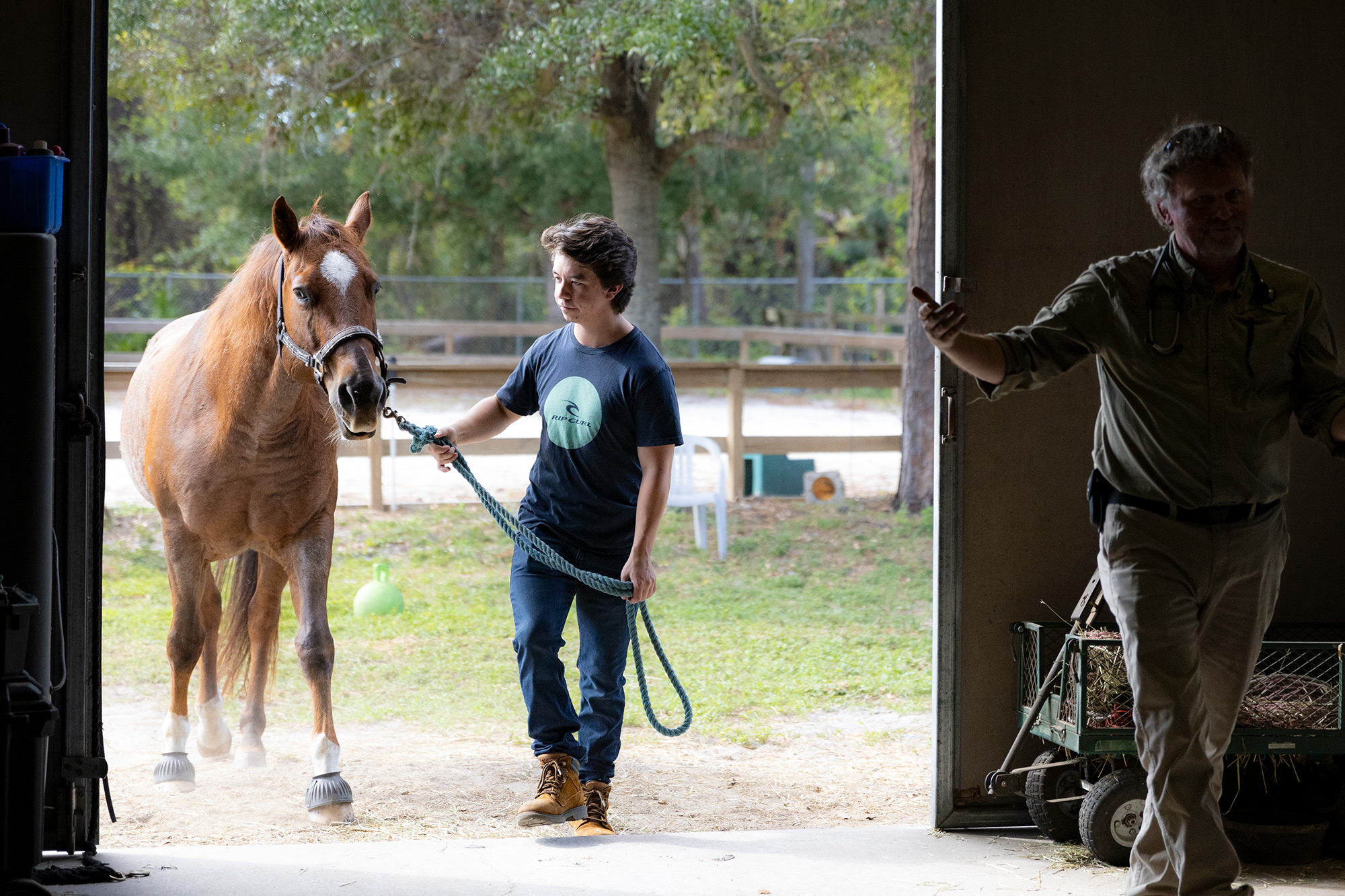None of the 11 Eckerd College students knew it at the time, but Clifford had had it rough.
A gentle, chestnut-colored, 18-year-old warmblood—which is a horse bred to perform in various equestrian sports—Clifford had been left abandoned in the Everglades. He was eventually rescued by local sheriff’s deputies who called Patti Reed, a Pinellas Park city councilmember and retired police officer who not only loves horses but also is a judge for Florida’s Special Olympics Equestrian Championship. Reed drove to South Florida, brought Clifford back to her farm and nursed him back to health.
Clifford now lives in a stable in nearby Seminole with eight other horses, all of them donated or rescued. The stable is owned by the Horses for Handicapped Foundation of Pinellas County, a private nonprofit organization that promotes and teaches recreational horseback riding and care to those with special needs. About a dozen people, some in wheelchairs, attend free classes at the stable each Saturday.
The horses get plenty of food, exercise and attention. They also get wellness checks, and that’s where the Eckerd students and Ray Ball come in. Ball, visiting assistant professor of biology and animal studies at Eckerd, also is a licensed veterinarian. On a recent Monday afternoon, Clifford stands patiently outside his stall while the Eckerd students, under Ball’s direction, listen to the horse’s heart and stomach, clean his hooves and perform other checks. The students are members of Ball’s Domestic Animal Health class.
“A lot of people are intimidated by horses,” Ball says. “I’m trying to get everyone comfortable with them. We’ll be learning how to handle horses and work with them, and then moving on to some basic health evaluations. The students learn how to lift their feet, check their teeth, listen to their heart and gut sounds. I have one horse that needs vaccines [Clifford], so I’ll be doing that. Everyone should be able to handle a horse and do some basics during our time today.”
One by one, the students put a halter on Clifford and two other horses and walk them out of the barn and back in. Some students look like seasoned pros. Others are hesitant.
“Put your hand on him,” Ball says to a student. “It helps let the horse know where you are.”
Jennifer Gilkey, barn manager and vice president of Horses for Handicapped, says that kind of interaction “is a great learning experience for the students. I personally love watching new people interact for the first time with our horses. And you never know. A student or Ray may pick up on something that may be a health issue that I didn’t catch.”
Even students who have spent time with horses find the experience enriching. “Actually getting out of the classroom and getting hands-on experience with animals is invaluable, and that’s something Dr. Ball has been great at this semester,” says Shea Sabolsky, a junior animal studies student from St. Petersburg. “Prior to visiting Horses for Handicapped, I’d ridden, led, walked and fed horses, but I never did any real maintenance or health work besides brushing them. Learning how to clean hooves, check a pulse and listen to their gut was all new and made for a rewarding afternoon.”
For some students, the experience isn’t over. “This is also a great opportunity for the students to meet us and find out what we do for the special needs community,” Gilkey adds. “In fact, after visiting the stables, three Eckerd students plan to return to volunteer. Isn’t that great?
“Our ponies say, ‘Thank you.’”















